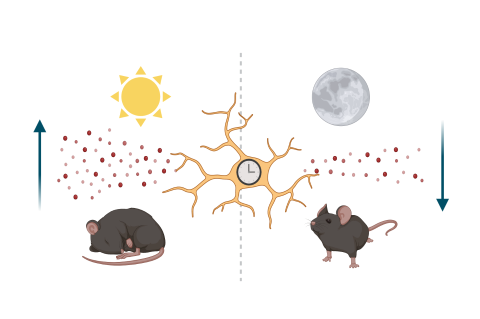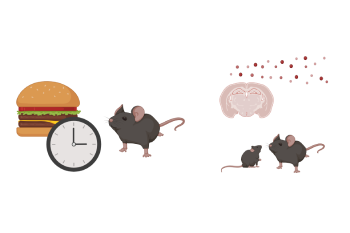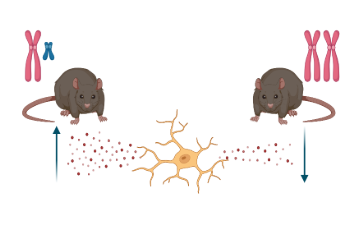Projects
I aim to understand the interactions between the circadian and neuroimmune systems, with the goal of using rhythmic immunity to improve health. My research is driven by the central questions:
- How do circadian rhythms regulate neuroinflammation?
- What are the consequences of circadian disruption on neuroimmune function?
The immune system has a critical biological function, governing an organism’s interaction with the environment and its ultimate survival. Immune function is also highly rhythmic: there are daily patterns of immune cell migration and in immune cell reactivity to stimuli (e.g., production of inflammatory cytokines, uptake of antigens). Inflammation is a common component in the etiology of many diseases, but our immune system can also be used to our advantage in fighting cancer and infections. Thus, a deeper understanding of the mechanisms regulating immune function will facilitate development of both restorative and preventative therapies.
I am particularly interested in how immune function and circadian immunity changes in the context of aging, and the potential for circadian-based strategies to boost immune health.
Featured
 Circadian clocks in microgliaHow does the microglial clock regulate neuroinflammation?
Circadian clocks in microgliaHow does the microglial clock regulate neuroinflammation?Using cell-specific disruption of the key clock element Bmal1, I am testing how microglial clocks regulate neuroinflammatory responses and behavior.
 Novel approaches to increase healthspanCan we live better longer by harnessing our circadian system?
Novel approaches to increase healthspanCan we live better longer by harnessing our circadian system?I am testing how time-restricted feeding modulates neuroinflammation and behavior in aging.
 Sex differences in neuroimmune agingHow do sex differences in immune function influence age-associated cognitive decline?
Sex differences in neuroimmune agingHow do sex differences in immune function influence age-associated cognitive decline?Female rats exhibit less age-associated neuroinflammatory priming than male rats, and aged females are more resistant to inflammation-induced cognitive decline.
